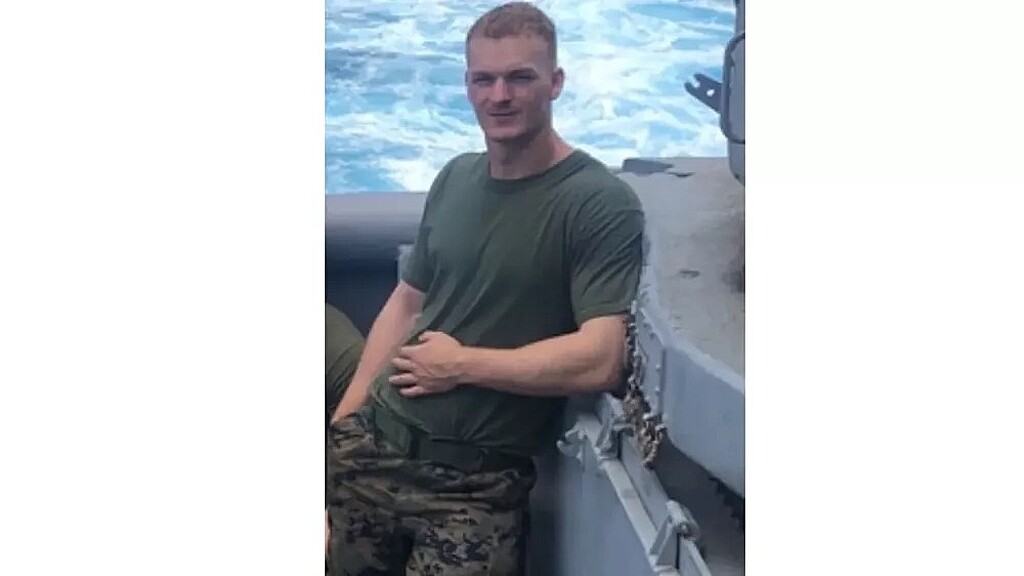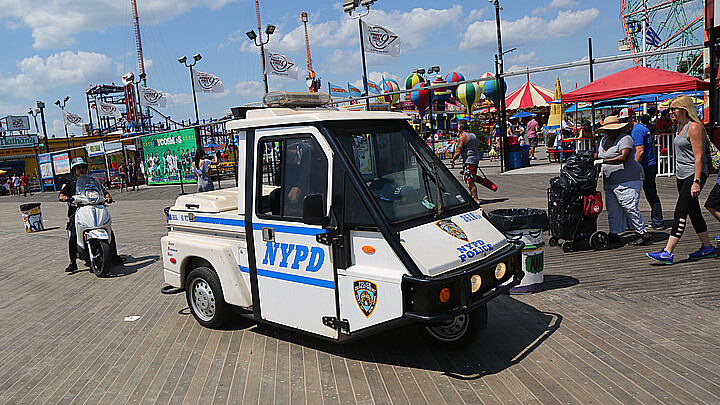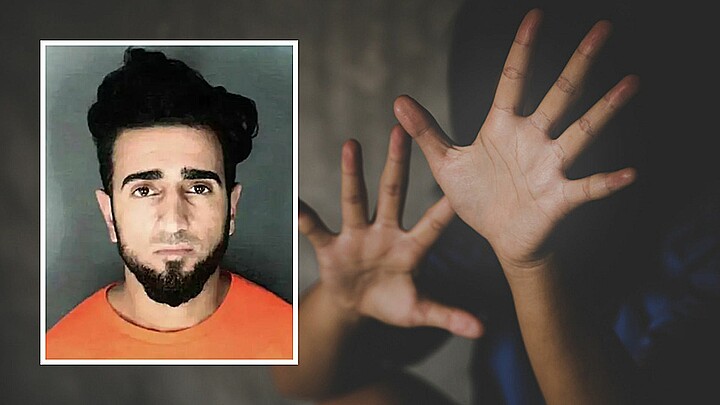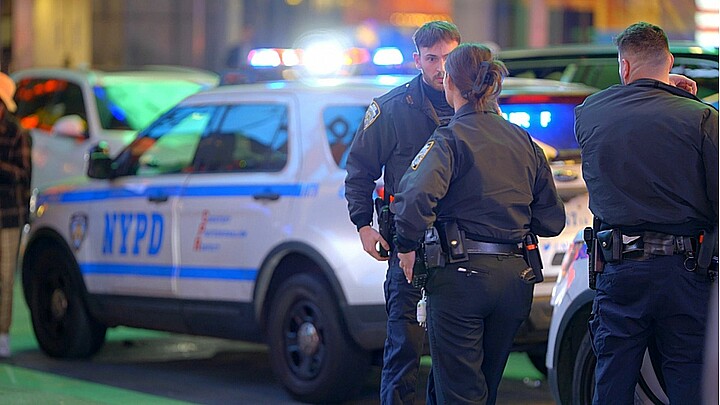Crime
Accused ex-Marine Daniel Penny says he's not racist, loved serving with Hispanics, traveled Latin America
The former Marine tells the New York Post says he learned to embrace people from different cultures and ethnicities while serving in the Corps and later traveling throughout Latin America

May 21, 2023 9:07am
Updated: May 21, 2023 9:07am
In an exclusive interview with the New York Post, former U.S. Marine Daniel Penny sat down in a Long Island park with reporter Dana Kennedy, telling her he’s not a white supremacist or vigilante, and that he treasured his experience serving alongside Hispanics and people of other ethnicities and backgrounds while in the military.
He even spent considerable time traveling throughout Latin America so he could embrace the culture.
Penny told reporter Kennedy that the chokehold killing of Jordan Neely, which has resulted in second-degree manslaughter charges against him had nothing to do with race, but rather his instincts as a good Samaritan trying to help a person in need.
He described the New York prosecutorial system as one “that so desperately failed us.”
The Post interview, which took place under a gazebo in Argyle Park in the Long Island town of Babylon were the former Marine’s first comments since the May 1 subway train event that could now result in 15 years in prison time.
“This had nothing to do with race,” Penny, 24, told Kennedy about Neely, a 30-year-old mentally ill homeless Black man. His aunt, Carolyn Neely told the Post that her nephew became a “complete mess” after his mother was tragically murdered in 2007. She confirmed Neely was schizophrenic and suffered from depression and PTSD.
She said, “the whole system just failed him” and “he fell through the cracks of the system.”
For his part, Penny said he is not a vigilante or a white supremacist. “I’m a normal guy,” he insisted. He said his decisions about how he interacts with people are based on who a person is inside, not the outside and their actions.
“I judge a person based on their character. I’m not a white supremacist. I mean, it’s, it’s a little bit comical. Everybody who’s ever met me can tell you, I love all people, I love all cultures. You can tell by my past and all my travels and adventures around the world. I was actually planning a road trip through Africa before this happened,” he explained.
The tragic event unfolded on May 1 at about 2:30 p.m. after Penny saw Neely yelling at other people on the train while he threw trash. He said it was a frightening seen unlike “anything I’d experienced before,” adding “this was different, this time was much different.”
Penny and his attorney, Thomas Kenniff of the Manhattan law firm Raiser & Kenniff insist there are witness accounts that will corroborate his version of events.
“I can tell you that the threats, the menacing, the terror that Jordan Neely introduced to that train has already been well documented,” he said. “I don’t think it’s going to even be controverted. There are numerous witnesses from all different walks of life who have absolutely no motive to do anything other than to recount what actually happened. They are uniform in their recollection of events.”
These facts will be crucial at trial since the standard for “self-defense” or “defense of others” is an “affirmative defense” in which the accused admits they committed the act that caused the killing, but denies the intent to commit a crime. His judgment will be based on the “objective standard” of a “reasonable person” which means that jurors will have to settle question of whether others in Penny’s circumstances would have done the same thing.
The interview revealed that the architecture student was returning to Manhattan from school on the F train and was headed to his workout gym on West 23rd Street in the Chelsea area.
“I was going to my gym,” Penny said. “There’s a pool there. I like to swim. I was living in the East Village. I take the subway multiple times a day. I think the New York transit system is the best in the world and I’ve been all over the world.”
Penny effectively apprehended Neely around the neck and subdued him to the floor while two other men also tried to restrain him. This point could be critical since it demonstrates two other passengers also felt the need to detain Neely.
The question however will then rest on whether Penny went too far or if he exercised the appropriate amount of force to subdue Neely from placing others in imminent harm.
The NYC medical examiner has ruled Neely’s death a homicide, saying it was caused by a “compression of neck (chokehold).”
According to the interview, Penny didn’t seem very familiar with racial politics in the city. He didn’t even know who the famous Black-activist, Rev. Al Sharpton was.
Penny he learned to handle things such as the charges against him in a calm manner because his father and grandfather are “very stoic.” But he reportedly described a happy childhood.
The grandson of Italian immigrants, Penny said he was raised in West Islip, one of four children. His parents separated when he was young. He talked about the beautiful house he grew up in and thanked his family for having the privilege of growing up by the water.
The interview took place close to the beaches where Penny grew up surfing.
After graduating from West Islip High School, Penny attended Suffolk Community College after where he played lacrosse. He was inspired to join the Marines because he was inspired by the post-Sept. 11 community he grew up in, surrounded by first responders. He said he “needed to serve my community in some way.”
He joined the USMC and was deployed twice as an infantry squad leader and instructor in water survival from 2017-2021. He served with the 22nd Marine Expeditionary Unit.
“We went to Kuwait, Bahrain, Oman, Jordan, Greece and Spain,” he told Kennedy. “We stayed off the coast of Iran for a bit. It was during that whole drone thing when they were shooting stuff down and stuff.”
Penny also went to Okinawa, Japan.
He said the experience taught him about the world, and contrary to the allegations of prejudice against him, how to embrace people from all different walks of life and ethnicities from different countries. He said a lot of the soldiers he served with were from different countries and he enjoyed learning about their cultures.
“I love to travel,” he said. “It really changed my perspective of the world for sure. I’m very thankful for being able to travel so much. Just the friendliness and welcoming of everyone and everywhere that I went to. And even before I deployed, you know, a lot of my friends I served with in my platoon came from all over a lot from Central America and Mexico, that, you know, I’ve opened up my, my eyes to their cultures and their perspectives.”
While the Marines taught him a lot, he said what really influenced him were the women he was raised by in his household.
“I just did what I had to do. And I think growing up in a majority female household, you learn to lead in different ways from an early age. You learn to have compassion and humility — and disregard your perspective and show compassion to other people’s perspectives as well.”
When he left the Marines, he missed traveling and interacting with different people from different countries so he traveled throughout Latin America, interacting with people in Guatemala and Nicaragua.
“I really missed the interaction,” he told Kennedy. “I missed the adventure, you know. So last summer, I decided to drive from New York and do a road trip through Mexico and Central America all the way to Nicaragua.”
Penny was so fascinated by Mexico that he got a car and drove cross country. He visited the enchanted forest in Oaxaca and got trapped on a mountain for a couple of days.
“My car got stuck in a landslide,” Penny said. ”We had to hike and find a local village to come help dig us out. They were so friendly and kind. They really treated me like family.
“You hear so many bad things about these places,” Penny said. “I just wanted to see for myself, and thankfully I was proven right that these people were always welcoming and friendly and treated me like family everywhere.”
He described a moment in Guatemala as having “suddenly felt overwhelmingly at home.”
“I was in Antigua, Guatemala, in a coffee shop. And I was just kind of overwhelmed by a sense of home even though I couldn’t be further from home, you know. So I just I attribute that that obviously, the locals there. They were very welcome — and also the structure I was sitting in. It was there I decided I wanted to study architecture and maybe help inspire other feelings of home for other people.”
The interview concluded with Penny telling reported Dana Kennedy that he is a calm soul who was conditioned by a life of surfing. He said he’s done it his entire life, and so did his father and grandfather before him.
In his first day appearance on Friday May 12, Penny did not enter a plea. He posted the $100,000 bail set by the judge. He was ordered to surrender his passport within 48 hours after his arraignment and was ordered not to leave the State of New York. He will appear again in court for a status check on July 17.
So far the Marine is receiving support from the public. A GiveSendGo fundraiser for Penny’s legal fund that was set up by his attorneys has already reached more than $2.7 million










